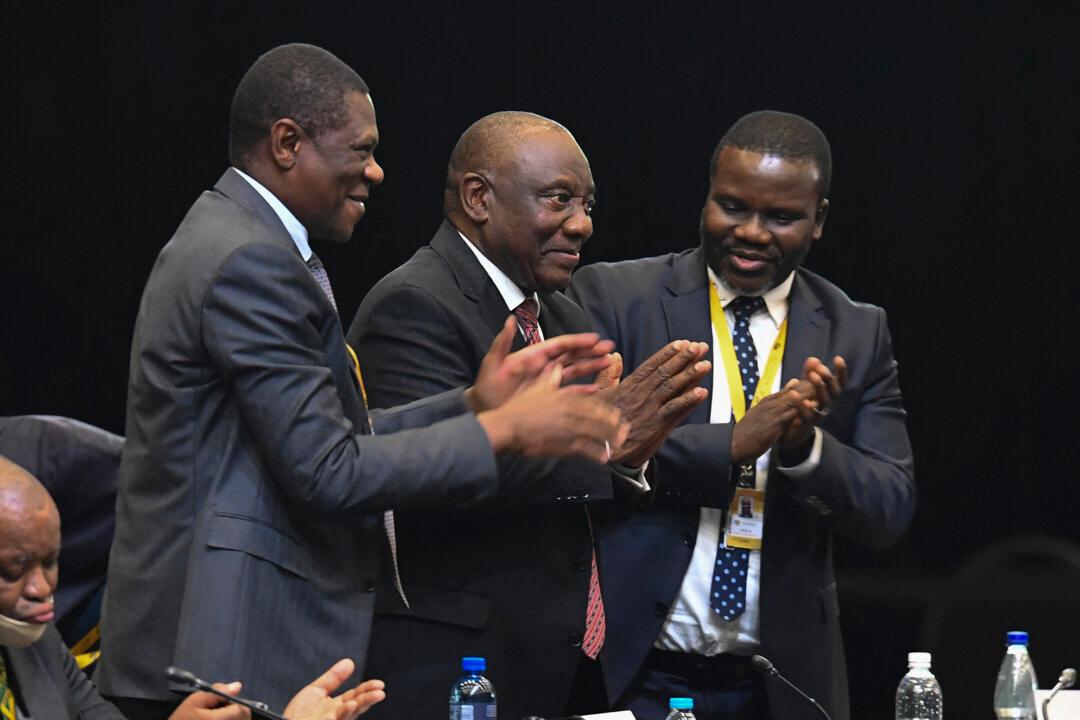JOHANNESBURG—South Africa’s unity government was confirmed on June 14, when the country’s second-largest political party, the Democratic Alliance (DA), signed an agreement with the African National Congress (ANC).
In terms of the deal, the DA’s 87 members of parliament, plus others from a few smaller parties, joined the 159 ANC MPs to support a second term as president for ANC leader Cyril Ramaphosa.





